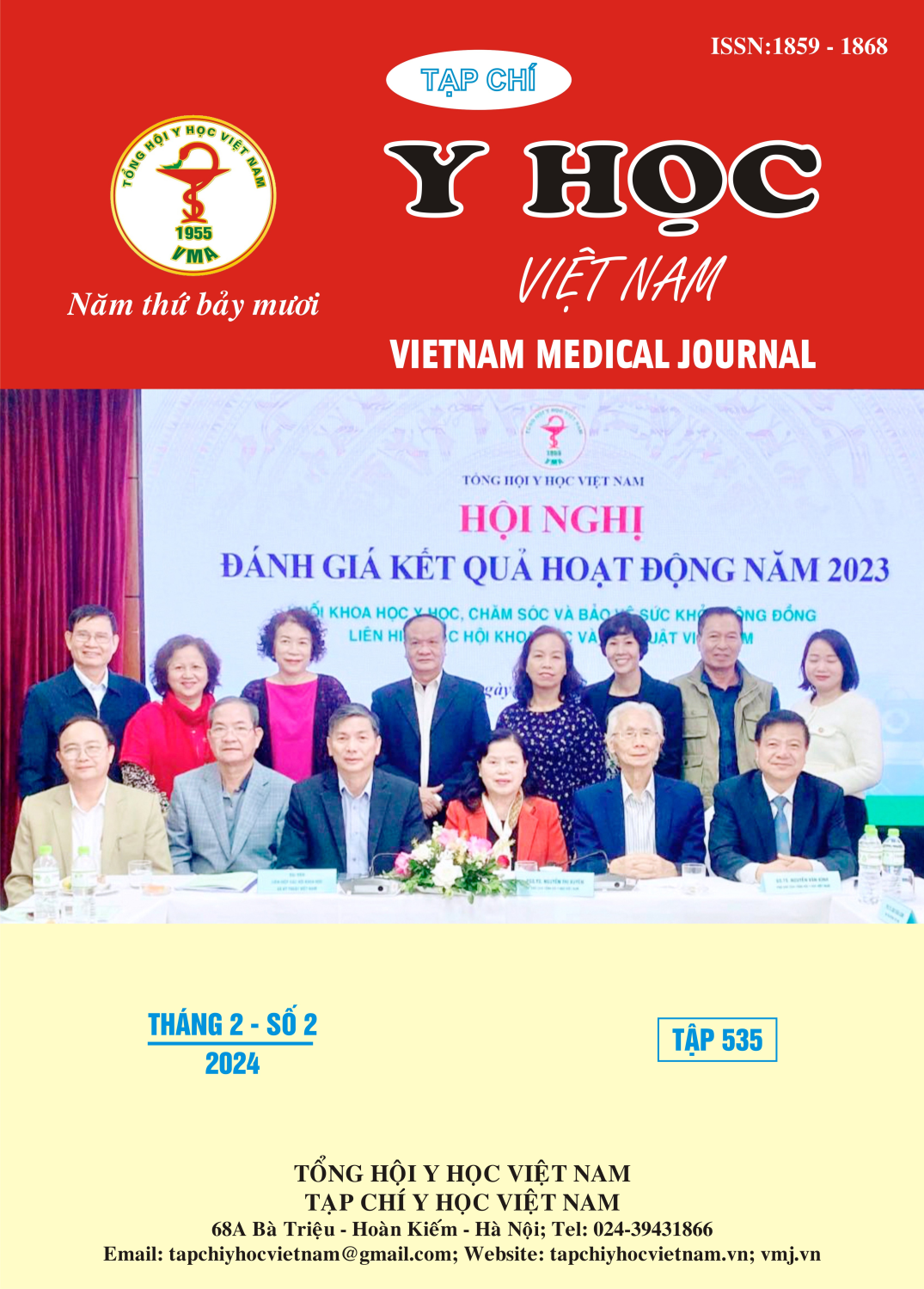RESEARCH DISEASE PATTERNS AND MEDICATION USE IN TREATMENT OF THREATENED MISCARRIAGE AT OBSTETRIC DEPARTMENT OF VINH MEDICAL UNIVERSITY HOSPITAL IN 2021 – 2023
Main Article Content
Abstract
Vinh Medical University Hospital was established in 2018, and is a second-class hospital in Vinh city. The disease pattern in the Obstetrics Department has its own characteristics. From the results of studying disease patterns of the Obstetrics Department, the hospital Board of Directors will have a plan to invest in facilities and people to improve the quality of treatment. Research object: data of inpatients in the obstetrics department from 2021 to October 2023. Research method: cross-sectional description, data processing using SPSS software. Results: In a total of 553 patients treated, the most common obstetric and gynecological diseases were cervical polyps and threatened miscarriage. Medicines to treat threatened miscarriage include the following drug groups: smooth muscle spasm relievers, and endocrine drugs, electrolytes supplements, vitamins and other essential nutrients
Article Details
Keywords
disease patterns, miscarriage
References
2. Lê Thị Hương, “Tình hình điều trị dọa sảy thai ≤12 tuần taị Bệnh viện Phụ sản Thanh Hóa năm 2013”, Tạp chí Phụ sản, tập 12 số 2, pp.65-68.
3. Võ Thị Vy Lộc, Lê Lam Hương (2017), “Nghiên cứu đặc điểm cận lâm sàng và kết quả điều trị dọa sẩy thai tại Bệnh viện Phụ Sản Nhi Đà Nẵng”, Tạp chí Phụ sản, tập 14, số 04, pp. 22 – 27
4. Uutela A., Tuomilehto J. (1992). Changes in disease patterns and related social trends. Social Science & Medicine. 35(4), 337 – 387.
5. Carl Bryce, MD, Offutt Family Medicine Residency, Offutt Air Force Base, Nebraska, 2019, “Treatment of Threatened Miscarriage with Progestogens”, American Family Physician, 2019;100(5):279-280
6. Hanglin Wu 1, Songying Zhang, 2021, “Pregnancy-related complications and perinatal outcomes following progesterone supplementation before 20 weeks of pregnancy in spontaneously achieved singleton pregnancies: a systematic review and meta-analysis”, Reprod Biol Endocrinol, Nov 4;19(1):165.


